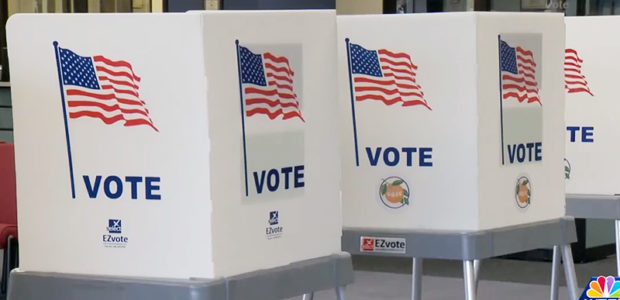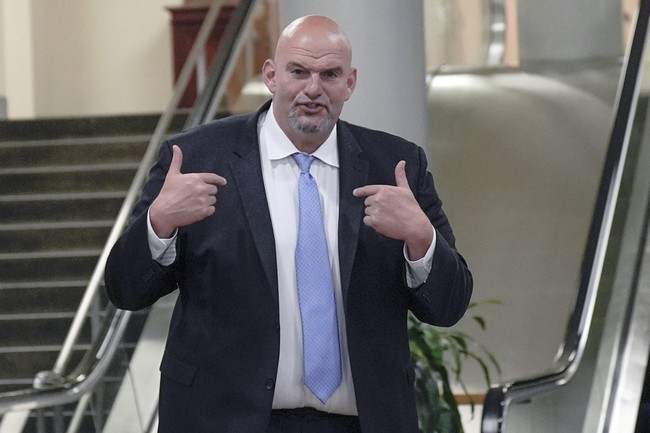ARTICLE AD BOX
PARIS — Jupiter will not be eclipsed. And certainly not by his nemesis: the face of the French far right, Marine Le Pen.
French President Emmanuel Macron is going for broke, calling for a snap election that is likely to deliver big wins for the far right. But it may also knock Le Pen off her stride as she eyes the bigger prize: the presidency in 2027.
That is the maverick gamble that the French president is making after the National Rally’s spectacular win on Sunday evening. The far-right, anti-migration party is projected to win the European election in France with 32 percent of the vote — more than twice that of the president’s centrist liberal party.
For weeks, the National Rally has been clamoring that it is “ready to govern” and wants a dissolution of the National Assembly if the presidential list loses the election. The National Rally’s lead candidate, 28-year-old Jordan Bardella, has even offered to act as Macron’s prime minister if they win a majority in parliament.
Now, Macron has cut short his victory lap in the EU election by offering an opportunity to turn their desires into reality, making the high-risk calculus that a legislative election three weeks out might sap the far-right tide in France.
At no point in history has the National Rally appeared closer to power, with more MEPs and members of parliament than ever, and opinion polls showing support for the French far right rising in new categories of voters. All eyes are on whether Le Pen can reverse her role as perennial runner-up in French presidential elections, and win in 2027.
The idea of Le Pen in the Élysée is viewed with horror in Brussels, where France lurching to the far right is seen as posing existential challenges to the EU. While Le Pen has softened her image and toned down her inflammatory and euroskeptic rhetoric, her party is still on the fringes of politics on a range of issues. The National Rally repeatedly abstained on Ukraine aid, wants to ultimately leave NATO’s integrated command and opposes many landmark EU legislative measures in recent years.
On Sunday, she struck a populist, patriotic tone — and delivered a message against Brussels’ internationalism — saying she wanted to “put an end to this painful epoch of globalism.”
Rallying against the Rally
Macron’s gamble is a simple one, and is intended to bring Le Pen down to Earth with a bump. While the European election has delivered a decisive victory for the National Rally, legislative elections are unlikely to deliver such a clear win. The National Rally will land more seats in parliament but probably not win enough to be in a position to govern.
“It will almost certainly put a brake on Le Pen. Because the base case is not that she will win a majority in the legislative election,” said Mujtaba Rahman, Europe head of the Eurasia Group, a risk consultancy. “I don’t think Le Pen will do as well in the legislative election, it’s a two round election, it’s a different group of voters who will be mobilized.”
French parliamentary elections do not use the same electoral system as European elections. In order to win a seat as a deputy you have to win 50 percent in the first round or, if not, face a run-off. Essentially, it’s a lot harder for a far-right candidate to win a seat in the national parliament.
As Brussels is viewed as a very distant concern, the European election is usually where the protest vote is expressed most strongly. In contrast, the legislative election is a two-round vote — on June 30 and July 7 — that historically favors more traditional parties, as voters from the left and the right usually rally round the more mainstream candidate to beat the far right.
 All eyes are on whether Marine Le Pen can reverse her role as perennial runner-up in French presidential elections, and win in 2027. | Daniel Dorko/Hans Lucas/AFP via Getty Images
All eyes are on whether Marine Le Pen can reverse her role as perennial runner-up in French presidential elections, and win in 2027. | Daniel Dorko/Hans Lucas/AFP via Getty ImagesThat rallying against the far right is the same political current that Macron harnessed to beat Le Pen — by 59 percent to 41 percent — in the 2022 presidential election.
But with the hard-right rising across the Europe, yesterday’s truths are no longer guaranteed in today’s new political reality.
Macron will likely use the next three weeks mobilizing supporters against the far-right threat. Such a rallying cry has worked in the past but the far right is now more mainstream in France than it ever has been. There is an outside chance that the National Rally could win a majority of seats in parliament and force the French president to form a coalition government, which would give the far right unforeseen power.
Shock announcement
Macron’s decision to call legislative elections, just weeks ahead of the 2024 Olympics stunned many even in his own party and has unleashed deep political uncertainty.
On Sunday evening, just one hour after provisional results were released, the French president announced that he would not carry on “as if nothing had happened” after his party’s drubbing.
“France needs a clear majority in serenity and harmony. To be French, at heart, is about choosing to write history, not being driven by it,” Macron said.
Wresting back the political narrative of the night, Macron’s move has eclipsed Bardella’s spectacular victory. Members of parliament have just one week to announce they are running in the upcoming election, and the dissolution of the National Assembly has put on hold the workings of the parliament and the senate.
“He responded to a shock [defeat] with more shock, we are talking more about the legislative election than about the European election,” said communications expert Arnaud Stephan, on France’s BFMTV television station.
According to Rahman, Macron was hurtling toward a political crisis this year whatever the outcome of the election. “He could see the writing on the wall. He knew [early elections] were coming. He wanted to get in front of it and grab the initiative,” he said.
France’s National Assembly has been increasingly paralysed since Macron’s coalition lost his absolute majority in parliamentary elections in 2022. He has been relying on ad hoc deals with the conservative Les Républicains to pass legislation, but the government couldn’t have fudged it much longer. In the autumn, lawmakers will be called to vote on a core conservative issue: the budget, amid rising deficits.
And it’s likely the opposition, from the far-right to the far-left, would have voted to topple the government.
Playing with fire
But while Macron’s daring move changes the narrative in the coming weeks, the result of a snap legislative election is far from a certainty.
“After a presidential election, a parliamentary election usually delivers a strong majority for the president, because his voters are buoyed up and the opposition is groggy,” said Benjamin Morel, political scientist at the Paris Panthéon-Assas University.
 While Macron’s daring move changes the narrative in the coming weeks, the result of a snap legislative election is far from a certainty. | Daniel Dorko/Hans Lucas/AFP via Getty Images
While Macron’s daring move changes the narrative in the coming weeks, the result of a snap legislative election is far from a certainty. | Daniel Dorko/Hans Lucas/AFP via Getty Images“But who knows who will mobilise for this snap election?” he added. It’s unclear whether Macron’s camp or Le Pen’s voters will be more hit by abstention after the European election.
It’s likely however that the National Rally will increase its number of seats in parliament, from 88 in the 577-seat assembly today. But the question now is how well they will do.
A leaked poll conducted by Les Républicains in December last year showed that the National Rally could make major gains in an early elections and get 243 to 305 lawmakers, potentially more than the threshold needed for a majority.
In that unlikely scenario, Macron would be obliged by tradition to nominate a National Rally prime minister, who would be in charge of the setting the government’s policies.
That would then bring Le Pen one step closer to power.
.png)
 1 year ago
13
1 year ago
13








 English (US)
English (US)